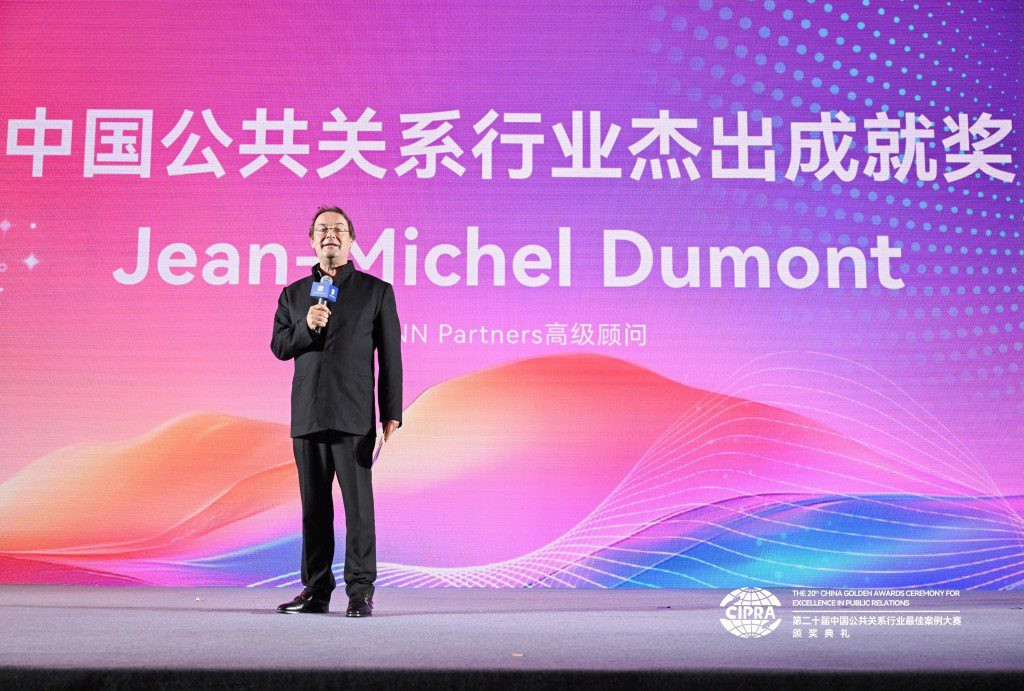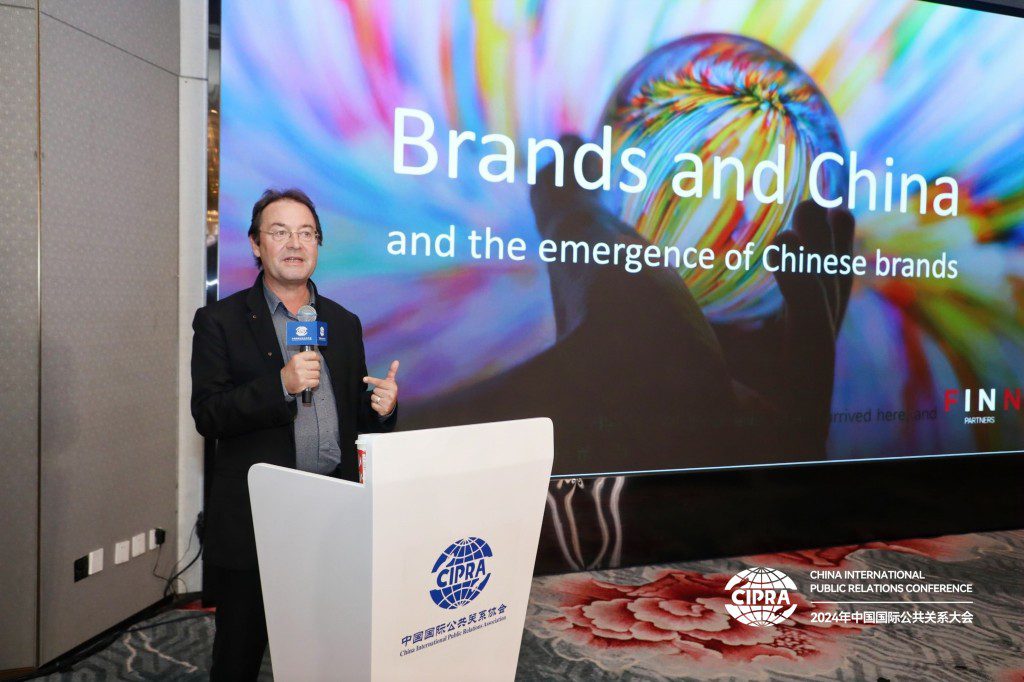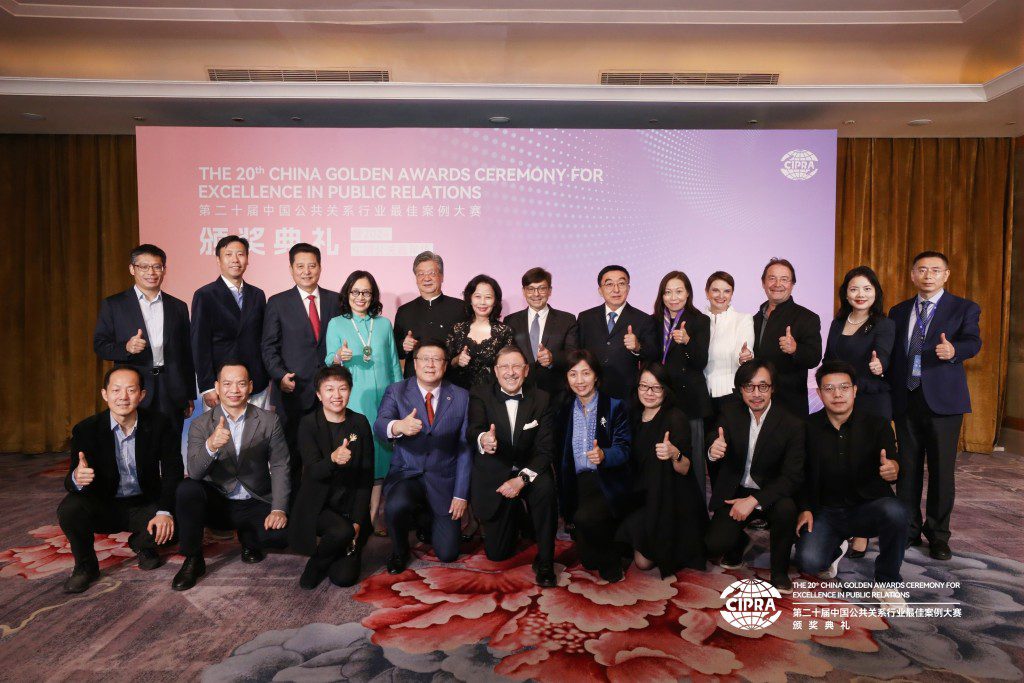News and Insights
Building Trust Across Borders
November 19, 2024
The China International Public Relations Association honored two pioneering PR practitioners this month. FINN Partners’ strategic planning for Asia Pacific, Jean-Michel Dumont, received the Outstanding Achievements in the Industry award. His brother Serge was presented with a Lifetime Achievement award. We caught up with Jean-Michel to explore his journey in helping shape China’s PR landscape and the future of U.S.-China business relations.

What drew you to China to pursue a career in PR and communications?
Despite graduating in pre-Columbian history and Spanish/Portuguese, with early career focus on Latin American tourism, my path unexpectedly turned when my Chinese-speaking brother Serge invited me to help open a PR office in Beijing in the mid-80s, when China was just starting to open up. What was planned as a two-month stay evolved into 35 years! We established the first major PR firm in a market unfamiliar with even basic press releases and where all of the media was uniform. Today, China’s PR industry leads in many areas, from social media to retail marketing, and I’m proud to have contributed to this evolution.
How has the Chinese economy changed since you began working there?
The transformation has been remarkable. When I arrived, cars were rare – just a few “red flag” government vehicles and taxis amid millions of bicycles. By 2000, China became the largest market for brands like VW and GM, particularly in luxury segments with Audi leading. Now, Chinese EVs often outperform Tesla! The fashion and beauty industry saw similar growth, from a time when makeup was frowned upon to becoming the world’s largest luxury and cosmetics market. Communication technology has evolved too – from telex systems and eight-hour advance booking for international calls to China becoming one of the world’s most connected countries, producing most global handsets through brands like Xiaomi and Oppo.

How have opportunities and challenges evolved for businesses entering the Chinese market?
Initially, foreign brands were aspirational and synonymous with quality, but affordability was an issue before China developed a middle class. Luxury brands like Christian Dior built early aspirational appeal. In the 90s, Chinese got overseas family members to bring them as gifts when visiting. As the middle class grew and overseas travel increased, Chinese consumers became more sophisticated and astute, focusing on brand value and cost benefits. Today’s market is highly competitive, with local brands gaining market share amid nationalist trends and quality improvements. Despite challenges, China remains crucial with its 500-million-strong middle class and an enviable growth rate of around 5%.
What advice do you have for businesses looking to build their brands in China today?
Two key points: first, never take China for granted, and don’t assume success in other markets guarantees success in China. The China market constantly evolves – yesterday’s truths may not apply tomorrow, so agility is essential, especially regarding online technology. China’s unique ecosystem enables awareness building and retail marketing on single platforms, offering marketing tools beyond Western capabilities at present. Second, today’s local competitors could become tomorrow’s global rivals – so don’t underestimate them.
You’re one of few non-native Chinese people recognized by the China International PR Association. To what do you owe this award?
Having been involved since the PR industry’s creation in China 40 years ago, and working on major campaigns, provided credibility and helped develop valuable relationships through the famed Guanxi system. Many senior communications professionals in the automotive and luxury sectors started in my agencies, which has been a huge benefit.

How have you and your brother influenced each other in achieving success in China’s PR sector?
Serge is the one who brought me to China, and without this original first step, my life would have been very different. Our respective awards are closely linked. Having said that, we only worked directly together for the first decade of this adventure and then developed individual paths in the industry. We are recognised for different accomplishments; however, this has certainly brought us closer together as we often work with the same people.
How has being an “outsider” in Chinese business culture shaped your approach? What unique perspectives has this given you?
Landing in 1980s China, so different from anything I’d experienced, taught me humility and the importance of continuous learning. This approach helped me integrate with local teams and communities. When people feel respected and valued while receiving value in return, it creates a continuous cycle of trust-building and relationship enhancement.
What were some pivotal moments in establishing credibility despite cultural barriers?
A significant milestone was creating the first CSR program with Tsinghua University’s journalism school in 2001. The program taught PR best practices to future PR professionals and critical thinking about, for example, greenwashing to journalism students. We brought in notable speakers like Anna Eleanor Roosevelt from Boeing. This initiative helped establish credibility and enabled work with clients on CSR strategies. It’s exciting to see FINN’s practice expanding across Asia today.
